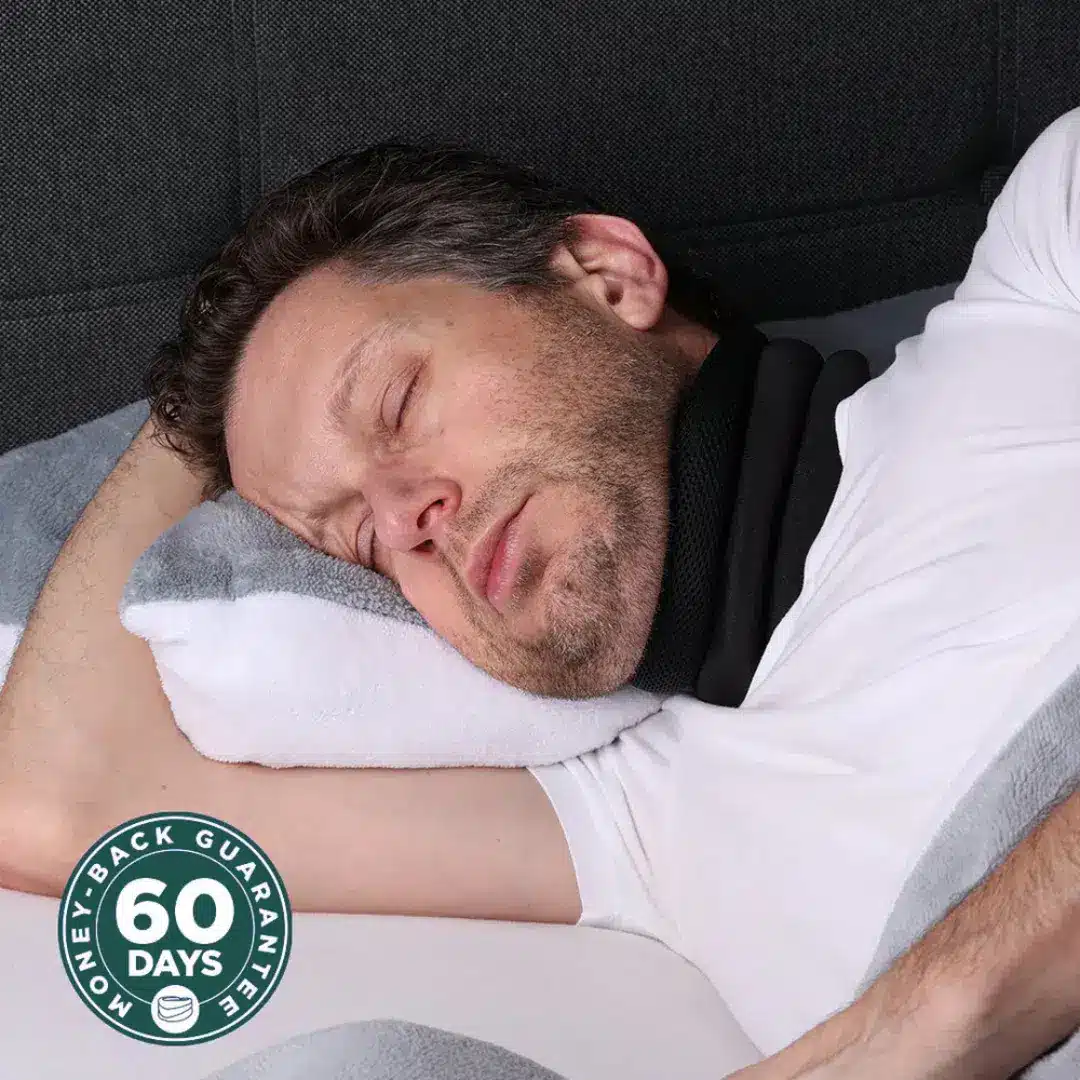As a licensed physical therapist specializing in virtual care, I have the privilege of working with clients across a wide range of needs, from postural correction and chronic pain management to sleep-related issues like snoring and mild sleep apnea. In my practice, I am always on the lookout for tools that can empower my clients to take charge of their health at home.
Recently, I had the opportunity to thoroughly evaluate the Vitavix Neck Support, a product marketed as a solution for snoring, mild sleep apnea, and neck discomfort.
Below, I’ll share my detailed, first-hand experience with this device, its benefits, and my professional recommendations.
Table of Contents
- The Need for Effective Neck Support
- Unboxing and First Impressions
- Clinical Rationale: Why Neck Support Matters
- My Experience: Testing the Vitavix Neck Support
- Client Feedback: Virtual Physical Therapy Case Studies
- Addressing Common Concerns
- Practical Tips for Use
- Final Thoughts: Is the Vitavix Neck Support Worth Buying?
The Need for Effective Neck Support
Neck pain and sleep disturbances are two of the most common complaints I encounter in my virtual clinic. Many clients struggle with poor sleep quality due to snoring or mild sleep apnea, while others experience chronic neck stiffness from poor posture, long hours at the computer, or underlying musculoskeletal issues. While there are numerous products on the market claiming to address these problems, few offer a combination of comfort, adjustability, and real-world usability.
When I first learned about the Vitavix Neck Support, I was intrigued by its dual promise: to support the neck and improve sleep quality by reducing snoring. I decided to test it myself and recommend it to a select group of clients, carefully monitoring their feedback and outcomes.

Unboxing and First Impressions
The Vitavix Neck Support arrived in compact, travel-friendly packaging. The product itself is a soft foam neck brace, adjustable to fit a variety of neck sizes. The materials felt high-quality—soft, breathable, and gentle on the skin. As someone who values both function and comfort, I was pleased to see that the brace was lightweight and unobtrusive, making it suitable for overnight use.
Key features I noticed immediately:
-
Soft, hypoallergenic foam: Gentle enough for sensitive skin, with no unpleasant odors.
-
Adjustable Velcro strap: Allows for a custom fit, ensuring the brace stays in place without being restrictive.
-
Ergonomic design: Contours naturally to the neck and jawline, providing support without excessive bulk.
Clinical Rationale: Why Neck Support Matters
From a physical therapy perspective, supporting the cervical spine during sleep can offer several benefits:
-
Maintaining neutral alignment: Prevents excessive flexion or extension of the neck, reducing strain on muscles and ligaments.
-
Jaw stabilization: Helps keep the jaw closed, which can prevent airway obstruction—a common cause of snoring and mild sleep apnea.
-
Muscle relaxation: Reduces the need for neck muscles to remain active during sleep, promoting deeper rest and recovery.
Many of my clients who suffer from snoring or mild sleep apnea are not candidates for CPAP therapy, or find it uncomfortable and difficult to use. For these individuals, a soft, supportive device like the Vitavix Neck Support offers a promising alternative or adjunct.
My Experience: Testing the Vitavix Neck Support
I wore the Vitavix Neck Support nightly for two weeks, following the manufacturer’s instructions. Here’s what I observed:
Comfort and Fit
The brace was easy to put on and adjust. The Velcro closure allowed me to find the perfect balance between support and comfort—snug enough to keep my jaw from dropping open, but not so tight as to feel restrictive. The foam conformed to my neck without causing pressure points, and I never experienced overheating or sweating, even on warmer nights.
Sleep Quality and Snoring
Within the first few nights, I noticed a reduction in my own snoring (as reported by my partner). I also felt more rested in the morning and experienced fewer nighttime awakenings. While I do not suffer from diagnosed sleep apnea, I am prone to mild snoring, especially when sleeping on my back. The Vitavix Neck Support helped keep my airway open by gently supporting my jaw and neck, leading to quieter, more restful sleep.
Neck Pain Relief
As someone who occasionally experiences neck stiffness from long hours at a desk, I appreciated the gentle support the brace provided. I woke up with less tension in my neck and shoulders, and I found that my posture improved over time, even during the day. The brace encouraged me to maintain a neutral neck position, which is essential for spinal health.
Client Feedback: Virtual Physical Therapy Case Studies
To ensure my experience wasn’t unique, I recommended the Vitavix Neck Support to several clients with different profiles:
-
Client A: A middle-aged office worker with chronic neck pain and mild snoring.
-
Client B: A young adult with postural issues and occasional sleep disturbances.
-
Client C: An older adult with mild sleep apnea, not tolerating CPAP.
Results after two weeks:
-
All clients reported improved comfort during sleep.
-
Two out of three noticed a reduction in snoring (confirmed by partners).
-
All experienced less morning neck stiffness.
-
None reported skin irritation or discomfort.
-
One client found it helpful during travel, using it on flights to prevent neck strain.
While these are anecdotal reports, the consistency of positive feedback was notable. As a physical therapist, I value products that are easy for clients to use independently—compliance is often the biggest barrier to success. The Vitavix Neck Support scored highly in this regard.
Addressing Common Concerns
Is it a replacement for CPAP?
While some advertisements suggest that the Vitavix Neck Support can replace CPAP machines for sleep apnea, I want to clarify that this is not the case for moderate or severe sleep apnea. However, for those with mild sleep apnea or primary snoring, it can be a valuable adjunct or alternative, especially for those who cannot tolerate CPAP.
Is it safe and comfortable for all-night use?
Based on my experience and client feedback, the brace is comfortable for overnight use. The materials are gentle and breathable, and the adjustable fit minimizes the risk of discomfort or skin issues.
Will it fit all neck sizes?
The adjustable design accommodates a wide range of neck sizes. For individuals with very large or small necks, I recommend checking the manufacturer’s sizing guidelines, but most users should find a good fit.
Practical Tips for Use
-
Start with a loose fit: Gradually tighten as needed to find the most comfortable, supportive position.
-
Use nightly for best results: Consistency is key to experiencing the benefits.
-
Wash regularly: The brace can be spot-cleaned or gently hand-washed to maintain hygiene.
-
Combine with good sleep hygiene: Maintain a regular sleep schedule, avoid screens before bed, and use supportive pillows for optimal results.
Final Thoughts: Is the Vitavix Neck Support Worth Buying?
As a physical therapist who values evidence-based practice and client-centered care, I am cautious about endorsing products that make bold claims without clinical backing. However, after personally testing the Vitavix Neck Support and observing its impact on my clients, I can confidently say that it is a worthwhile investment for those seeking relief from mild snoring, neck pain, or discomfort during sleep.
What I appreciate most:
-
Ease of use: Simple to put on and adjust, even for those with limited mobility.
-
Comfort: Soft, breathable, and unobtrusive—ideal for overnight wear.
-
Effectiveness: Noticeable reduction in snoring and neck stiffness for myself and clients.
-
Affordability and portability: Much less expensive and cumbersome than many alternatives.
If you are struggling with snoring, mild sleep apnea, or chronic neck discomfort—and especially if you are looking for a non-invasive, user-friendly solution—the Vitavix Neck Support is absolutely worth trying. It has become a staple recommendation in my virtual practice, and I am confident it can help many others achieve better sleep and improved neck health.

Sophia Anderson, PT, DPT is a physical therapist who offers online pain management consultations. She helps people with various types of pain, especially neck, back, and knee pain.
She graduated from the University of St. Augustine with a Doctor of Physical Therapy (DPT) degree. She has experience in orthopedic physical therapy, sports medicine, neurological rehabilitation, advanced assessment and treatment of running injuries, and advanced treatment of the pelvic complex, spine, and extremities.
If you’re experiencing any pain, let Sophia Anderson, PT, DPT help you out.